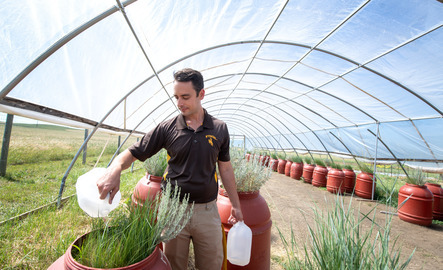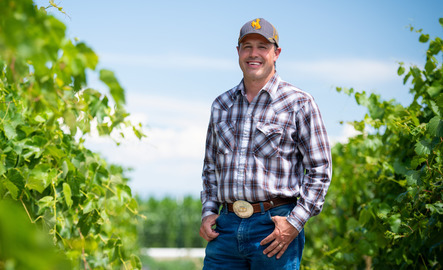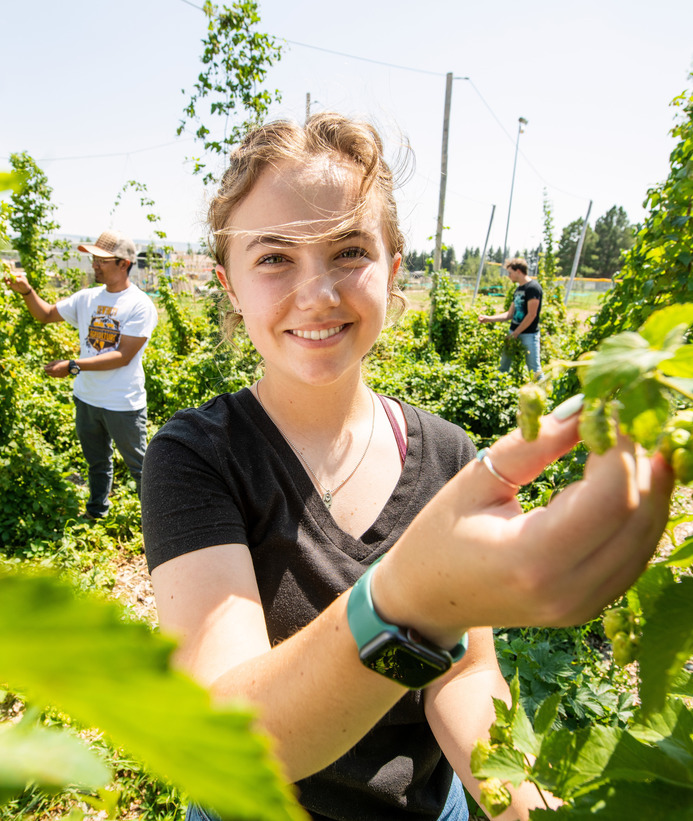About the Horticulture Minor
The minor in horticulture is a 20-credit-hour program that includes required fundamentals and exciting elective options. As part of this program, you’ll study a variety of cutting-edge horticulture topics and learn about the technologies that are crucial for the future of horticulture production, including automated irrigation systems, controlled environment systems, and environmental instrumentation.
You’ll also have the opportunity to study landscaping, plant materials, propagation, organic food production, seed technology, plant breeding and crop production in greenhouses, and controlled environments.
The minor in horticulture is NOT for plant production & protection majors.
If you're interested in majoring in horticulture, our Bachelor of Science in Plant Production and Protection has a horticulture concentration you can pursue!

With our Plant Production and Protection degree program, you have the opportunity to tailor your degree to suit your particular interests through four specialized concentrations, maximizing the benefits of your degree.
Concentrations:
- Agronomy
- Horticulture
- Integrated Pest Management
- Agroecology
Four minors are also available for students pursuing other majors at UW, and may be an excellent complement to your education.
Minors:
- Agronomy
- Agroecology
- Horticulture
- Plant Protection

What can you do with a minor in horticulture?
A horticulture education opens the door to a wide variety of career opportunities, including vegetable and small fruit production, greenhouse management and controlled environment crop production. Our students additionally pursue careers in environmental and landscape horticulture, new variety breeding and production and urban tree care.
Here is just a small sampling of jobs and careers in horticulture:
- Horticulturist
- Horticulture Technician
- Golf Course Superintendent
- Garden Assistant
- Pest Control Technician
- Herbarium Curator
- Landscape Designer
- Irrigation Specialist
- Produce Inspector
Yes, horticulture is a useful degree—especially if you're passionate about plants, sustainability or food systems. It opens up diverse career paths in areas like crop production, landscape design, greenhouse management, research, environmental conservation and urban agriculture. As global demand grows for sustainable farming, climate-resilient plants and green spaces, the skills gained through a horticulture degree are increasingly valuable in both the public and private sectors.
Yes! As global demand grows for sustainable farming, climate-resilient plants and green spaces, the skills gained through a horticulture degree are increasingly valuable in both the public and private sectors.
A horticulturist specializes in the science and practice of growing fruits, vegetables, flowers and ornamental plants. They may work in landscaping, crop production, research or greenhouse management, often focusing on improving plant health, sustainability and productivity. Horticulturists are employed in settings like farms, nurseries, botanical gardens, research labs and environmental agencies.
"This is a great program for anyone looking to gain interdisciplinary skills and knowledge in Agronomy and Horticulture."
- Rhett Greenwald | B.S. in Agroecology (2024)


